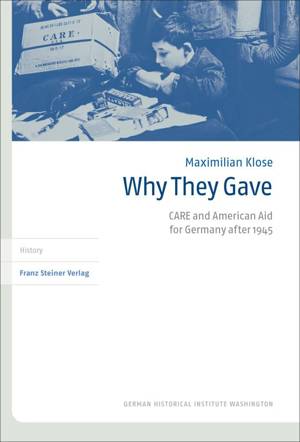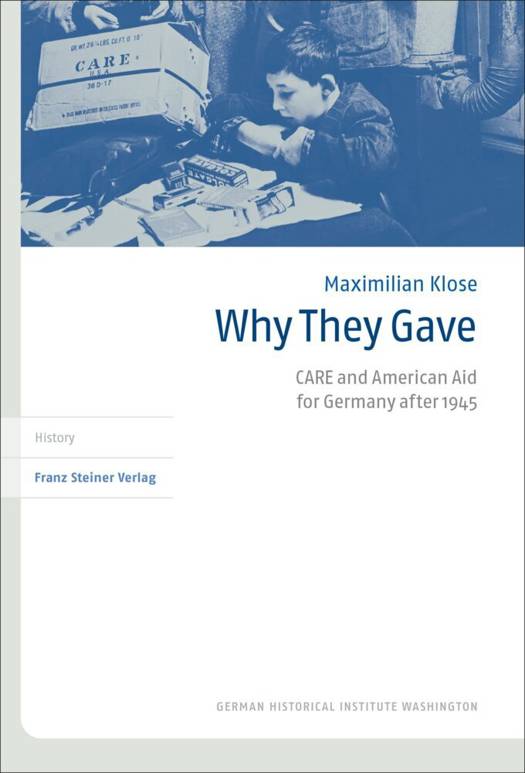
- Retrait gratuit dans votre magasin Club
- 7.000.000 titres dans notre catalogue
- Payer en toute sécurité
- Toujours un magasin près de chez vous
- Retrait gratuit dans votre magasin Club
- 7.000.0000 titres dans notre catalogue
- Payer en toute sécurité
- Toujours un magasin près de chez vous
Description
What motivates people to give to those in need? How do their actions reflect the historical moment in which they occur? Founded in 1945, the Cooperative for American Remittances to Europe (CARE) allowed U.S. citizens to send humanitarian aid to friends, family, and strangers overseas. Germany was the most popular destination for CARE packages, with numbers exceeding those of all other European destinations combined. Maximilian Klose examines why Americans were more likely to give aid to their recently defeated enemies than to their allies or to the victims of Nazi aggression. Embedding a diverse selection of case studies in the social, cultural, and political debates of the early postwar era, the study finds that these acts of giving were much more than altruistic deeds. In fact, donors used humanitarianism for their own purposes. Some gave to people who reflected their own worldview and sense of importance, or who could strategically advance their power on either side of the Atlantic. Others supported causes they considered essential to the progress of German-American relations in the early Cold War. In all cases, humanitarianism was at least as much about the donor as it was about the recipient. "In his deeply researched book, Maximilian Klose tells a fresh and fascinating history of humanitarian giving. Examining the multiplicity of motivations that led individual Americans to help feed the German people after the Second World War, his book paints a complex and intimate portrait of both aid donors and aid recipients. With an eye toward agency and emotions, Klose shows how ordinary people shaped foreign relations at a pivotal moment of world history."Julia F. Irwin, T. Harry Williams Professor of History, Louisiana State University, author of Catastrophic Diplomacy: US Foreign Disaster Assistance in the American Century "Maximilian Klose's well-written book on CARE is a very welcome addition to existing literature on humanitarian relief, exceeding in significance by far the immediate confines of its case. By putting the question of "why" people were motived to provide aid at the heart of his meticulously researched study, Klose adds both substance and nuance to our understanding of the forces at play in an age of ever more "complex humanitarian emergencies."Daniel Roger Maul, University of Oslo, author of The Politics of Service: American Quakers and the Emergence of International Relief, 1917-1945 Winner of the 2023 Franz Steiner Prize in Transatlantic History and the Dissertation Prize awarded by the German Historical Association's Working Group on International History
Spécifications
Parties prenantes
- Auteur(s) :
- Editeur:
Contenu
- Nombre de pages :
- 265
- Langue:
- Anglais
- Collection :
- Tome:
- n° 63
Caractéristiques
- EAN:
- 9783515136532
- Date de parution :
- 06-06-24
- Format:
- Livre relié
- Format numérique:
- Genaaid
- Dimensions :
- 155 mm x 229 mm
- Poids :
- 508 g

Les avis
Nous publions uniquement les avis qui respectent les conditions requises. Consultez nos conditions pour les avis.






